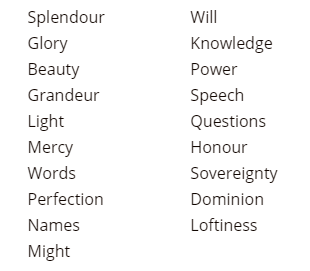Each Manifestation of God starts a new cycle and initiates a divine springtime that uplifts and refreshes the earth and humanity for many centuries. And with the coming of each new day Of God there are new religious holidays and celebrations.
The early Christians were Jews who were breaking away from the celebration of the Holy Days of Judaism and, celebrating instead the Gospel and birth of Christ, for example.
In former dispensations the holy days were added to the church by believers or the priesthood, but not by the Manifestations themselves. For example, the months of the Christian calendar are named after Roman gods thus carrying forward Roman beliefs. However, the Holy Days of the Baha’i Faith were established by Baha’u’llah through His Covenant with humanity.
Both the Bab and Baha’u’llah, the Twin Manifestations of God of this age, established independent religions that are not sects associated with former religions. Therefore, Baha’u’llah created a new calendar to glorify God and He associated divine attributes with the names of the months of the year.
In the Baha’i calendar, for example, there are 19 days per month, and 19 months per year. Each of the months is named for an Attribute of God.
Baha’i Holy Days are recognized and applauded by many school systems throughout the world but not all of them. For example, in Iran where Baha’is are actively persecuted none of the Baha’i Holy Days are acknowledged.
Miracle Springs School District. Fortunately, the Miracle Springs Independent School District acknowledges Baha’i Holy Days and allows Baha’i children to be exempted from attending school on their Holy Days.
